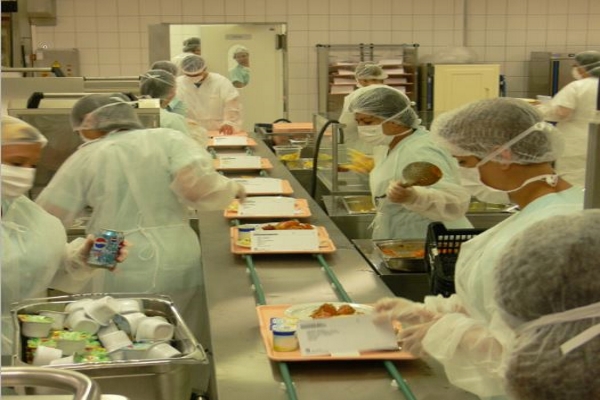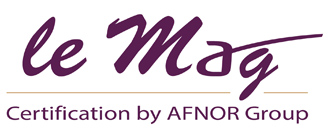
©DR
[columns_row width=”two-thirds-and-third”]
[column]
Hospital dining services face many different challenges, including sanitary risks, patient and staff satisfaction, cost control, and more. Because of this, voluntary standards and ISO 22000 certification are of the highest importance. Saint-Joseph Hospital in Marseille is proof.
Why use certification?
Food is a part of care. At the hospital, undernutrition is a common condition. Early care through quality nutrition makes it possible to improve the effectiveness of treatments, quality of life, recovery and healing. Our hospital’s management and the food-nutrition liaison committee are firm believers in this. To complement the already mandatory HACCP method, they wanted us to certify our quality management system, structured since 2011 on the basis of the ISO 22000 voluntary standard. The continual analysis of failures allows us to limit the recurrence rate and to control our production processes in order to guarantee the sanitary quality of the food. Patients are informed of all this in the welcome booklet.
Who is in charge of this initiative?
The hospital’s food security group, which brings together all stakeholders affected by hospital nutrition from very different levels. There are regular representatives from the dining service, management, maintenance, care units, quality assurance, and the environmental oversight manager. I’ll admit that the standard’s requirements forced us to make major changes to bring things up to code. From the point when we identified the gaps in our procedures until we got initial results, the process quickly materialized. The internal training modules were also critical for making everyone feel involved at their own level.
How do you involve so many people?
The first reaction, especially for those who were farthest from it, was often to sigh and assume it just meant “yet another thing to do”! But through good communications, we were able to make staff understand the importance of procedures and the record-keeping necessary to guarantee the quality of the food. In terms of equipment maintenance, for example, spare parts were stocked to repair equipment, but also to use for preventive maintenance, which made it possible to reduce the number of breakdowns. So you shouldn’t get scared the first time you read a standard. Ultimately, you end up ahead. The initial results have encouraged us to take our initiative even further.
Questions for Sophie Corale, technical manager for dining, and Patrick Masure, hospitality and nutrition manager.
[/column]
[column]
![]()
Saint-Joseph Hospital, Marseille
- 2,455 employees, 305 independent doctors and 98 salaried doctors
- 787 beds
- 65,000 admissions and visits (2015)
- €252 million operating budget (2015)
- Initial AFAQ ISO 22000 certification in May 2011
- 1,200 meals served to patients each day
- 600 meals served to doctors and staff at lunch every day
- 70 meals served in the public cafeteria
[/column]
[/columns_row]




